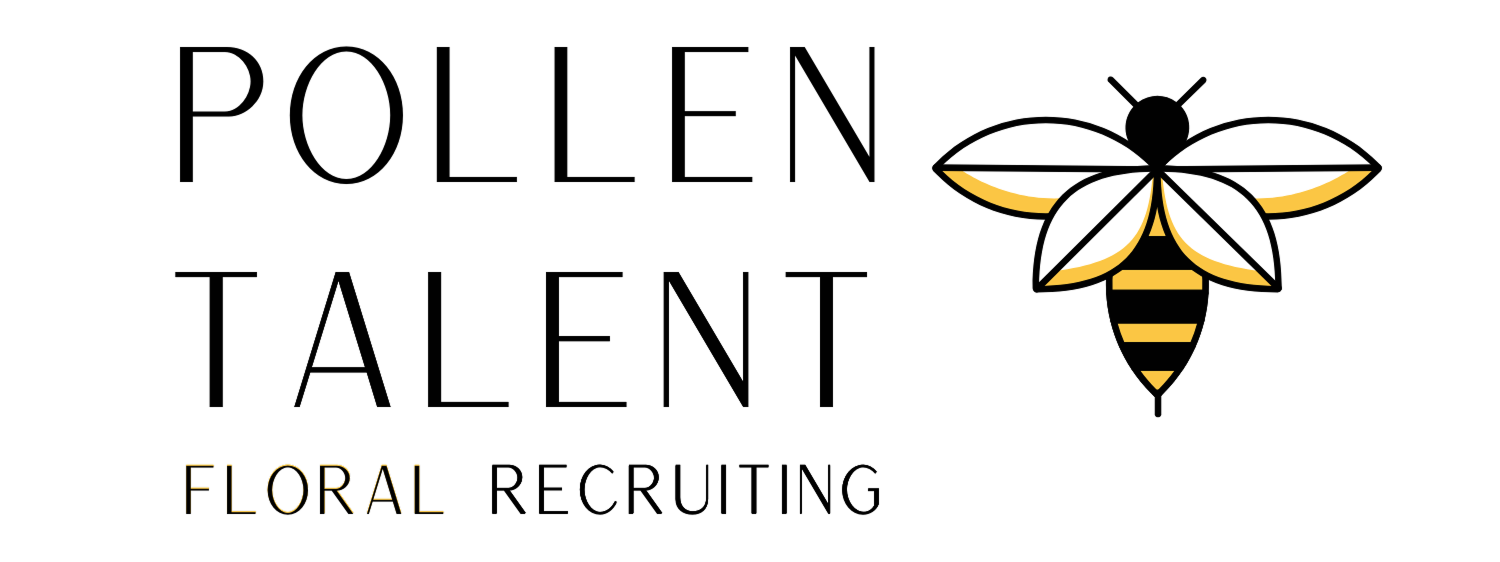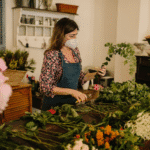The world of floral industry careers has never smelled more promising. While the sector may have once been synonymous with traditional flower shops and wedding florists, today’s floral world is a blooming ecosystem of creative, logistical, and strategic roles. From design to distribution, technology to teaching, opportunities are flourishing.
One of the biggest shifts? The rise of vetted hiring programs and tailored floral staffing solutions that help distributors find better talent faster. Whether you’re considering a career in flowers or you’re a distributor seeking top-tier professionals, understanding this evolving landscape is key to long-term growth.
Key Takeaways
- The floral industry offers diverse career paths, from artistic to analytical roles.
- Top positions include floral designers, educators, supply chain managers, and e-commerce specialists.
- Vetted hiring programs now give floral distributors faster access to qualified, industry-ready professionals.
- Careers in floristry no longer require formal degrees but do demand creativity, adaptability, and passion.
What Are Floral Industry Careers?
Floral industry careers encompass a wide range of roles involved in growing, designing, marketing, and distributing flowers. It’s not just about arranging blooms—there are career opportunities in:
- Retail floristry (flower shops, boutiques)
- Wholesale & distribution (B2B operations, logistics)
- Event-based services (weddings, corporate events)
- Agriculture & floriculture (flower farming, sustainability)
- Education & content creation (teaching, floral photography)
With the rise of online platforms and global sourcing, many roles now overlap with tech, logistics, and customer service.
Why Choose a Career in the Floral Industry?
The floral industry blends creativity with purpose. Here’s why many professionals are exploring floral industry careers:
- There is a growing demand for personalized floral experiences in weddings, holidays, and gifting.
- Emotionally rewarding work—florists play a role in people’s happiest (and hardest) moments.
- Flexible job formats, including part-time, freelance, and remote options.
- Career stability with year-round demand, particularly in wholesale and logistics.
Top 10 Floral Industry Careers You Should Know About
1. Floral Designers
Designers who craft stunning arrangements for all occasions. They blend color theory, balance, and seasonality.
- Salary: $30,000–$50,000
- Requirements: Creative skills, basic floral design education, hands-on experience
2. Event Floral Stylists
These professionals create floral atmospheres for weddings and high-end events. They often collaborate with planners.
- Salary: $45,000–$70,000
- Focus: Trends, large-scale installations, luxury events
3. Florist Shop Owners
Entrepreneurs who own floral retail stores. Requires design, business, and customer service skills.
- Salary: Highly variable depending on location and clientele
- Growth Path: From employee to business owner
4. Wholesale Flower Distributors
They supply flowers to retailers, managing sourcing, importing, and logistics.
- Skills needed: Supply chain management, inventory, B2B relationships
- Great for: Organized, business-savvy professionals
5. Flower Farmers or Growers
They are involved in cultivating blooms for sale. Many are moving toward sustainable, organic practices.
- Trends: Local-first sourcing, farm-to-vase movement
- Skills: Horticulture knowledge, environmental awareness
6. Floral Educators
They teach flower design or floriculture in classrooms or workshops.
- Job Settings: Colleges, floral schools, private workshops
- Great for: Experienced florists with a passion for teaching
7. Botanical Illustrators or Photographers
These roles are creative yet technical, involving the documentation of flowers for books, brands, or digital platforms.
- Demand: High in branding, online stores, and educational media
- Tools of the trade: DSLR cameras, drawing tablets
8. E-commerce Floral Specialists
They work for large floral retailers like 1-800-Flowers, focusing on packaging, logistics, and product design.
- Skills: SEO, product photography, user experience
- Setting: Often remote or hybrid
9. Floral Supply Chain Managers
They handle the logistical side—inventory, shipping, freshness tracking.
- Critical role for any distributor
- In demand in national and international floral networks
10. Sympathy & Funeral Flower Consultants
These professionals specialize in arranging flowers for memorial services and communicating with grieving families.
- Soft skills needed: Compassion, listening, patience
- Setting: Funeral homes, specialty shops
Part-Time & Freelance Floral Industry Careers
Not every floral career needs to be full-time. Many creatives and side hustlers enjoy:
- Freelance event floristry
- Weekend wedding work
- Part-time shop help
- Remote content writing or digital marketing for flower brands
This makes floral industry careers accessible to students, caregivers, and those with other jobs.
How to Get Started in a Floral Industry Career
Breaking into the industry doesn’t always require a degree. You can start by:
- Taking an online floral design course (Floral Design Institute)
- Apprenticing under an experienced florist
- Joining local workshops or classes
- Networking at events like the Society of American Florists’ conferences
What Skills Do You Need for Floral Industry Careers?
Success in floral careers comes down to a blend of:
- Design & creativity: Understanding color, shape, texture
- Customer service: Especially in retail and events
- Time management: Floral products are perishable
- Floral handling knowledge: Conditioning, stem prep, hydration
- Business basics: Marketing, sales, and pricing
Best Degrees & Certifications for Floral Industry Careers
While not always required, certain certifications give you an edge:
- AIFD Certification – American Institute of Floral Designers (aifd.org)
- Degree in Horticulture or Botany
- Floral Design Certificates from local colleges
- Online certifications (offered by organizations like Floral Design Institute)
Salary Expectations for Floral Industry Careers
Here’s what you can expect for common roles:
| Role | Average Salary (USD) |
| Floral Designer | $30,000 – $50,000 |
| Event Floral Stylist | $45,000 – $70,000 |
| Grower | $40,000 – $60,000 |
| Floral Educator | $35,000 – $55,000 |
Location, experience, and specialization greatly affect salary.
Biggest Employers in the Floral Industry
Major players span traditional and modern:
- Teleflora
- FTD
- 1-800-Flowers
- Local and boutique flower shops
- Supermarket floral departments
- Wholesale hubs like Mayesh or the New York Flower Market
How Technology Is Changing Floral Industry Careers
Today’s careers in floristry aren’t stuck in the soil. Modern changes include:
- E-commerce platforms like Shopify and WooCommerce
- Apps for flower ordering, CRM, and POS
- Automation in greenhouses and supply chains
- Digital marketing needs (SEO, PPC, social media for florists)
Floral Industry Career Trends for 2025 and Beyond
What’s next?
- Sustainable floristry is driving new roles and consumer demand’
- Micro-floristry for curated, artisan bouquets is rising.
- Online floral businesses are experiencing growth.
- Vetted hiring platforms are emerging to match talent with distribution needs.
The Rise of Vetted Hiring in Floral Distribution
As distributors face pressure to meet growing demand while maintaining high standards, floral staffing solutions have become increasingly sophisticated. Today, many organizations are turning to vetted candidate programs to streamline their hiring processes.
Benefits of Vetted Candidate Programs for Floral Distributors:
- Faster onboarding: No more wasted time on underqualified candidates
- Pre-screened for skill & culture fit
- Lower turnover rates from aligned hires
- Increased efficiency in busy seasons like Valentine’s Day or Mother’s Day
- Flexible hiring options: Temp, freelance, seasonal, or full-time
By sourcing talent through platforms that understand the nuances of floral industry careers, distributors save time, reduce costs, and enhance quality.
How to Find Floral Industry Job Opportunities
Looking for your next role or trying to hire better talent? Start with:
- Industry job boards (Floral Daily, SAF Careers)
- LinkedIn & Indeed with niche filters
- Industry associations likeSAF
- Events & expos—networking can go a long way
FAQs About Floral Industry Careers
- What qualifications do I need to become a florist?
You don’t need a formal degree. Basic floral design courses and hands-on experience are often enough to get started. - Is floral design a good career?
Yes—especially if you enjoy creative, hands-on work. The job is rewarding, but can be physically demanding and seasonal. - Are there remote jobs in the floral industry?
Absolutely. Marketing, customer support, and e-commerce operations are often fully remote roles. - What’s the future of the floral industry?
The outlook is strong. As consumers demand more eco-conscious, personalized experiences, skilled floral professionals will remain in high demand.
Watch & Learn: YouTube Resources
Final Thoughts
The floral industry is evolving—and so are the careers within it. With the rise of vetted hiring, distributors can now access better talent than ever before. And for job seekers, that means more meaningful, stable, and fulfilling roles are within reach. Whether you’re building a floral empire or just planting the first seeds, the opportunities in this vibrant industry are in full bloom.
Looking to hire better talent or explore a career in flowers?
Discover how our vetted staffing solutions are helping floral distributors connect with passionate professionals across the U.S. Contact our team today to learn more.





